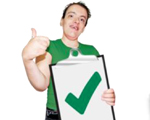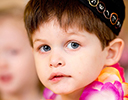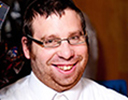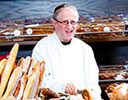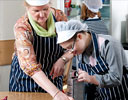The focus on the recent inset day at Kisharon School was exploring techniques used to help pupils with limited verbal communication and understanding.
The training included innovative methods like Blank’s Level of Questioning, used to gauge children’s grasp of the questions teachers ask in class, and Colourful Semantics, a clever way of attributing colour to categories of words. This allows children to build up sentences and put words in the right order.
Conventional techniques in use at the school were on the agenda too. These include Makaton sign language and many visual aids and symbols.
With the ability to talk so readily taken for granted, the teachers began by attempting to communicate without using words to experience the frustration of the children in the classroom.
The topic, communication at mealtimes, also involved a role play exercise. Teachers, who often feed the children, were asked to feed each other and experienced how annoying it was to be fed too quickly, or too slowly. This, together with some children’s inability to communicate which dish they wanted to eat, added to their exasperation.
For those on the autistic spectrum the location of food on the plate, cutlery and noise levels could all create difficulties.
Creating a good environment for autistic pupils was covered in the training, and teachers were asked to conduct a sensory audit of their classrooms.
This included checking for flickering lights, patterns created by sunlight coming into the classroom through blinds and background hum from computers and audio systems inadvertedly left on.
The training day was lead by Kisharon School Speech and Language Therapy Manager Vicky Taub, who said: “The training looked at how best to support our pupils at school. Afterwards, teachers said it was very useful and relevant.”
<< Back

